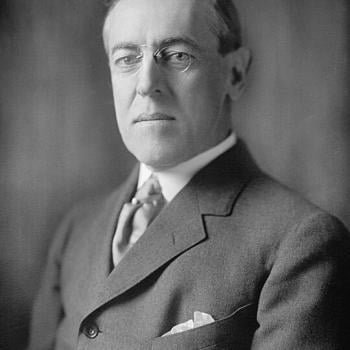But it isn't just the storytelling art form that is in crisis. We are an age of non-exceptionalism in all the arts, which has something to do with the loss of rigor and discipline that is the doorway to the beautiful. Maybe a lot of the angst-driven artistic "need to connect" impulse in our time have been drowned in Ritalin and Prozac. Finally, I think the urge to make something beautiful comes from a sense of gratitude and immortality. In our culture, both those values are ever more quaint.
In Hollywood, storytelling since Jaws has suffered mainly due to the fact that movies are seen first as commercial products and second as whole, harmonious and radiant stories. There is no change to any part of a story that today's studio wont make to please an egomaniacal actor or director. There is no part of a movie too sacred not to be cheapened by product placement. There is no overarching theme that can survive the endless tinkering of producers trying desperately to bring the project in on time and under budget. The pursuit of the mass-appeal blockbuster has made lovely, quirky human stories a very tough sell in Hollywood. The only real future for good movie stories seems to be outside the studio system. It's sad, but I think Hollywood's days of having access to the imagination of the world are gone.
You have an interesting take on modern day Christian movies and the stories they relay that may come as a surprise to some. Could you share?
I hate to even make the concession it requires to refer to some movies and stories as "Christian." Practically speaking, I'm not sure what it means to be a Christian story. I know what it is to be a beautiful movie, and this has everything to do with excellence of craft and integrity of theme and story. It makes sense to me that anything that is a beautiful movie should also be esteemed by Christians. I do make the distinction that some stories are sacred in that they are relating Biblical or explicitly religious images and history. Using this language, we could say that there have been sacred stories that are unchristian, like The Last Temptation of Christ and Kingdom of Heaven.
There is a reactionary momentum right now among some Biblically-based folks both Catholic and Protestant to make movies that are affirming and soothing for our own sub-culture. Aristotle says that there are two ways that dramatic stories get wrecked. One is in making changes to pander to the players. The other is in making changes to pander to the audience. Most of the projects that are called "Christian" movies suffer from the latter ailment. When we start out shooting for non-offensiveness, we generally end up producing sentimentality—what the great storyteller Flannery O'Connor called "an over-emphasis on innocence." She noted that because we "know what is in the hearts of men" the overemphasis on innocence is particularly inexcusable for Christians.
There is a prophetic voice in the arts that we stifle whenever we make creative judgments out of fear. Needless to say, nothing beautiful can come out of the desire to "show Hollywood" either. Finally, nothing beautiful is going to come out of cheap, quickie efforts that are born without any real respect for God-given talent, and the limits and possibilities of the screen art form itself. Christians who want to be part of this art form need to adopt as a creed that a movie is excruciatingly hard to produce or it isn't worth doing. I want to throw up every time a Christian tells me that they never watch movies, and then that they have written one.
The greatest "epiphanies of beauty" (JPII, Letter to Artists) in storytelling today are coming from artists who are outside of any real attachment to a faith community. Movies like the 2006 Best Foreign Oscar film, The Lives of Others. Or Jason Reitman's wonderfully and unintentionally pro-life film, Juno. I have never experienced in any Christian film what Aristotle referred to as "tragic wonder," but I have felt it in Precious, and The Hurt Locker and Sophie Scholl and In the Bedroom and Requiem for a Dream. None of those films were made by Christians, but they are much, much more beautiful and consequently Christian than the banal and badly crafted Christian sub-culture products like Facing the Giants, Bella, Therese, and Fireproof.
In short, if we serve the beautiful and honor the story we have the chance of finding both. If we set out, instead to foment a spirit of triumphalism in the Church, then story and beauty will evade us; and also any really lasting good.
Do you think today's Christian writers are timid in their approach to real life and real struggle?
I don't know if it is timidity or laziness but the effect is the same. We remain standing on the sidelines begging for consideration from hardworking pagans who don't get us. We have to earn the right to place our values in front of the culture. Our work has to be so good that we can't be ignored. My sense is Christians avoid the mainstream culture out of the ironically contradictory feelings of superiority and fear. We are afraid to lose our veneer of purity by mixing it up in the unevangelized world. Neither reflect mature faith or pastoral love. Pope John Paul the Second once said that the Church of this day and age will have to atone for its failure to use the media to spread the Gospel.




